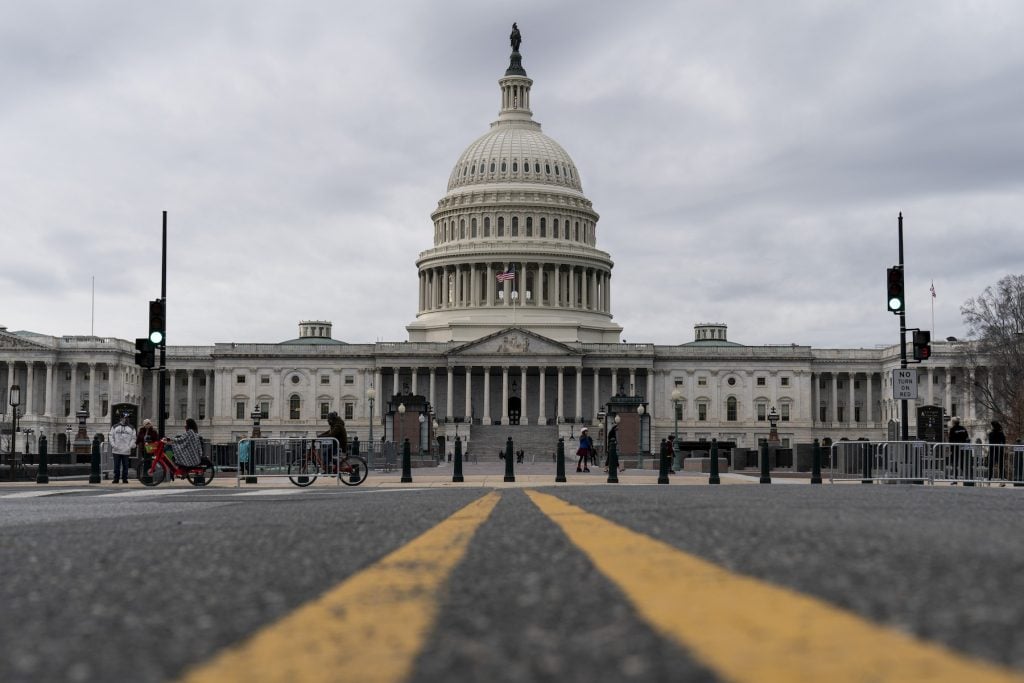Law & Politics
An Anti-Money Laundering Bill That Could Have Profound Effects on the Art Market Just Took a Big Step Forward
The Enablers Act would require art and antique dealers to investigate potential clients and report financial wrongdoing.

The Enablers Act would require art and antique dealers to investigate potential clients and report financial wrongdoing.

by
Taylor Dafoe

This week, lawmakers in Washington moved one step closer to passing a general anti-money laundering law that could have profound effects on the art market.
The bill, known as the Enablers Act, would amend the 52-year-old Bank Secrecy Act to require art and antique dealers, as well as lawyers, trust companies, public relations firms, and others, to investigate potential clients and report financial wrongdoing—a safe-guard against the rich obscuring illicitly-acquired money and assets.
The law would, in other words, introduce strict regulations to the notoriously unregulated art market. Dealers, advisors, galleries, auction houses, and museums are all specifically mentioned in the text of the bill and would face new legal obligations if it is passed.
“Middlemen in foreign transactions should be subject to the same anti-money laundering checks as banks, and this brings us one step closer,” Republican Representative Joe Wilson of South Carolina, who co-introduced the bipartisan bill in 2021, told the International Consortium of Investigative Journalists (ICIJ). “Nobody should be able to hide behind blood money to exploit democratic institutions for their benefit.”
Grateful to have led this amendment to keep blood money out of our democracy. https://t.co/2NWJAM7Eyx
— Joe Wilson (@RepJoeWilson) June 24, 2022
On Wednesday, the House Armed Services Committee voted by voice to include the Enablers Act in the National Defense Authorization Act, a bill passed annually that specifies the budget for the Department of Defense. Inclusion in the Defense Authorization Act makes it likely that the Enablers Acts will be approved by the House later this year.
If the act passes, it will be the most significant update to the country’s anti-money laundering laws in two decades, according to another one of its initial sponsors, Democratic New Jersey representative Tom Malinowski. “This will make it much harder for the world’s crooks and kleptocrats to hide their money in America,” he wrote on Twitter.
The Senate Armed Services Committee passed its own version of the National Defense Authorization Act earlier this month. Lawmakers from both bodies will convene in a conference committee later this year to reconcile the two bills, a process that could decide the ultimate fate of Enablers Act this year.
Our lax rules against dirty foreign money not only help crooks like Putin. The loot that enters our system corrupts our politics and drives up prices (especially real estate) for law abiding Americans. I look forward to getting this legislation to President Biden soon.
— Tom Malinowski (@Malinowski) June 24, 2022
Wilson and Malinowski, along with representatives Maria Elvira Salazar (Florida) and Steve Cohen (Tennessee), introduced the Enablers Act last October, in the wake of the Pandora Papers investigation. The investigation, led by the ICIJ, revealed that more than 1,600 works of art by some 400 artists were used to secretly shuffle money through tax havens in recent years.
In 2020, lawmakers similarly included the Corporate Transparency Act, a bill that requires U.S. companies to report their owners to the Treasury Department’s Financial Crimes Enforcement Network, in the National Defense Authorization Act. Doing so led to the act’s passing.
Notably, the bill also required antiquities dealers to follow the anti-money laundering provisions of the Bank Secrecy Act.